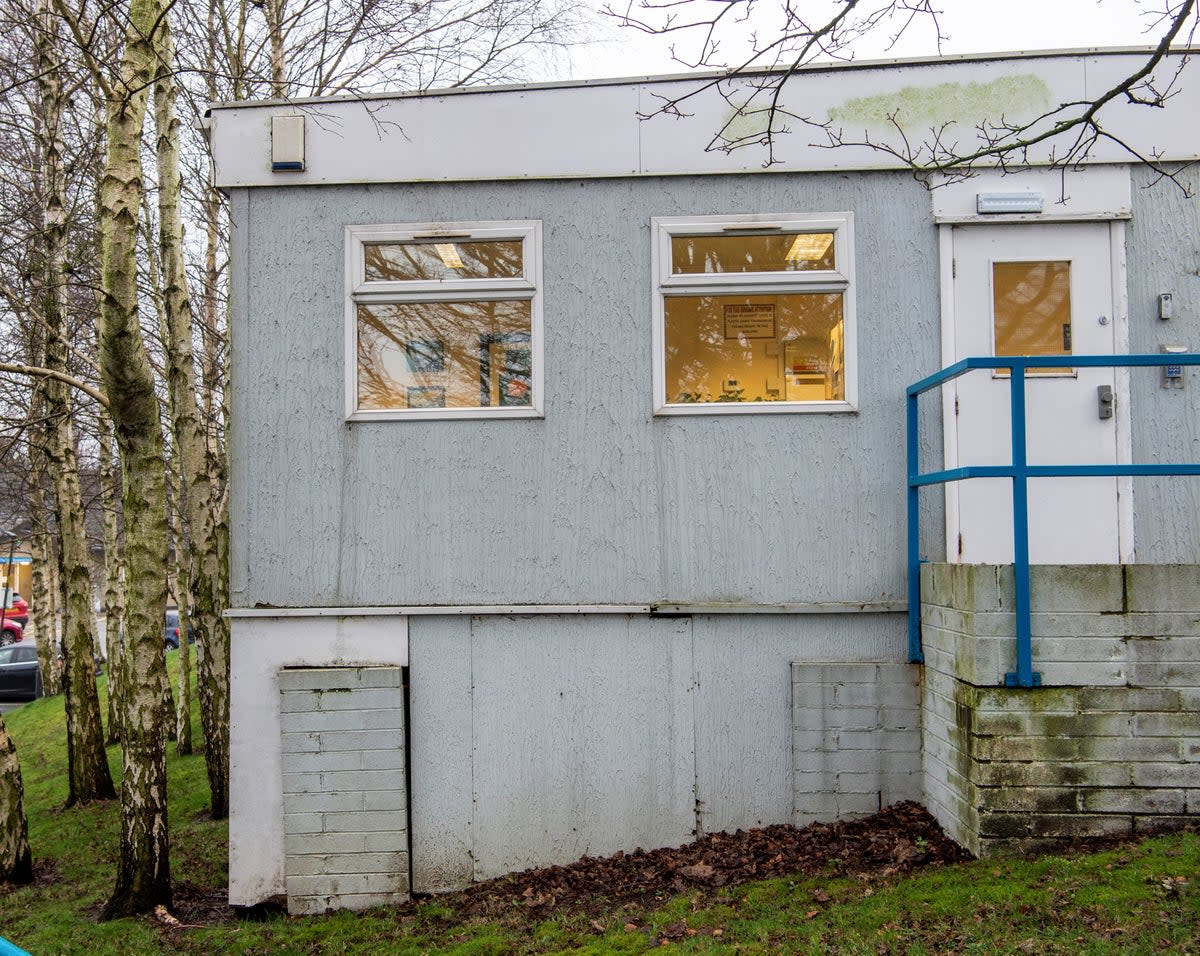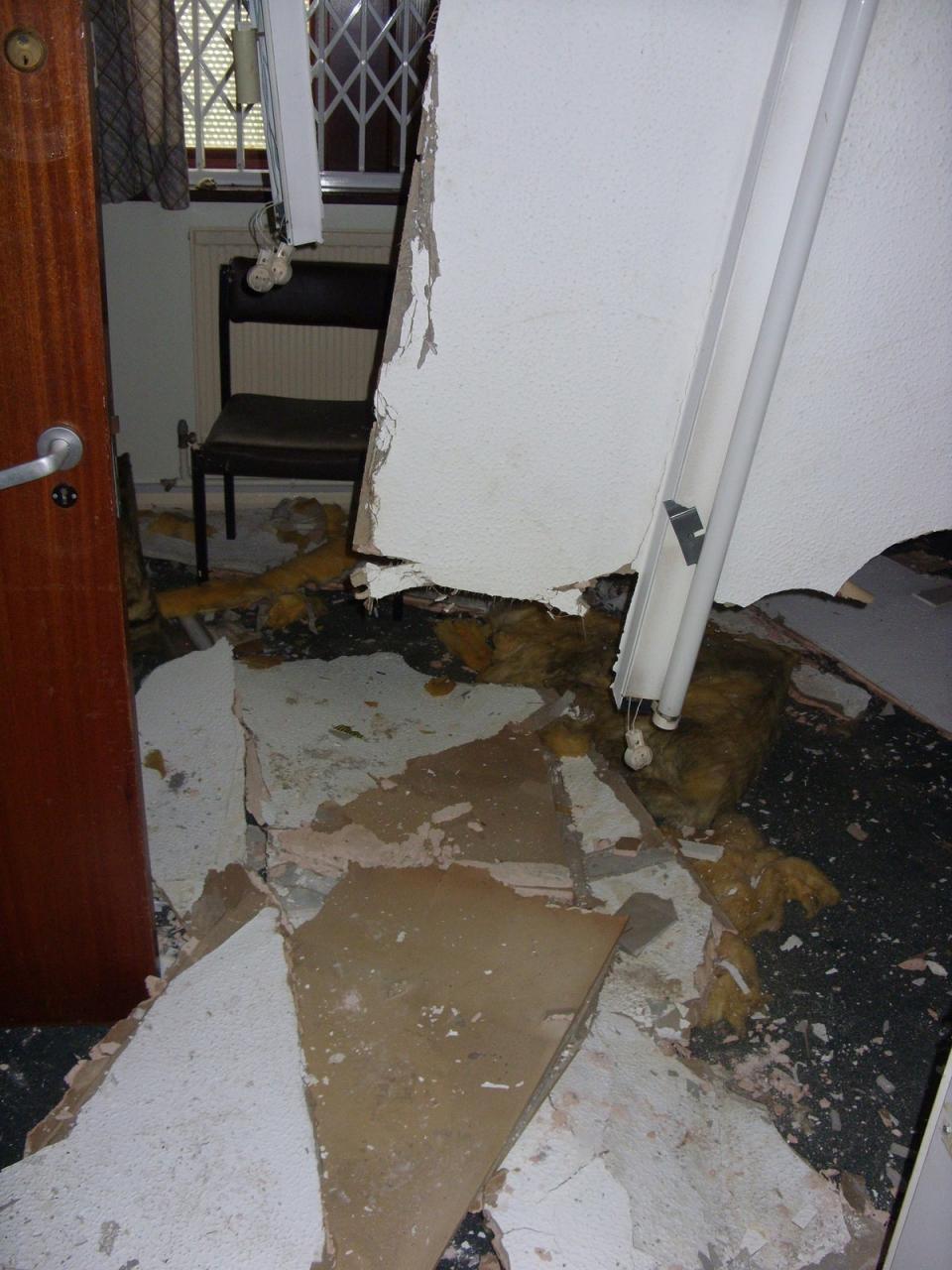Mental health patients left in dilapidated wards amid £677m repairs backlog

Dilapidated mental health facilities across the country are in need of £677m worth of repairs to fix sewerage issues, collapsing roofs and wards that deprive patients of their dignity, The Independent has been told.
An NHS analysis of the government’s flagship programme to build 40 hospitals, seen by The Independent, shows ministers have failed in their promise of “parity” for mental health services as issues are not addressed.
NHS trust and psychiatry leaders warned that the out-of-date buildings are putting patients at risk and urged the government to include six mental health hospitals within its next round of improvements.
It comes after health secretary Steve Barclay hinted that the programme could be scaled back due to “inflated” costs.
Data analysis by the Royal College of Psychiatrists, shared with The Independent, found that the cost of fixing “high and significant” risks in mental health and learning disability hospitals has rocketed from £92m in 2019-20 to £186m in 2021-22 – far higher than the 16 per cent increase in costs seen in acute hospitals. These are risks that must be fixed to avoid “catastrophic” failure or safety problems that could result in serious injury.
Saffron Cordery, interim chief executive at NHS Providers, told The Independent: “An [overall] £677m maintenance backlog across mental health trusts is an unwelcome extra burden on overstretched services struggling with an all-time high 1.8 million people in contact with them.”
“What is efficient about a mental health trust having to spend hundreds of thousands of pounds every year to repair outdated buildings? Mental health trusts need capital funding, allocated quickly, fairly and transparently, for more modern facilities, so that patients receive care in the right environment.”
Have you been affected by this story? Email rebecca.thomas@independent.co.uk
She said patients and staff are at risk because so many buildings aren’t fit for purpose, and warned that things will get worse until mental health trusts get the capital funding they need.
The analysis also found that 6,483 rooms – one-third of rooms on mental health wards nationally – do not have ensuite bathrooms.
Andy Bell, deputy chief for the Centre for Mental Health, said that outdated buildings undermine safe care for patients, and that failing to invest in improvements puts patients at risk.
‘No dignity’
Leaders at Bradford District Care Foundation Trust told The Independent that building problems in its region were forcing longer stays for patients and driving up out-of-area placements.
Issues include sewerage problems, a lack of ensuite wards, male patient rooms overlooking female recreation areas, and ward temperature problems that have prompted 95 call-outs a year.

Dr Sarfaraz Shora, deputy medical director and consultant psychiatrist for the trust said patients were “distressed” about the ward environments adding: “We had sewage in the ward, and it was so distressing for the patients but also for the staff. We have 21 unwell patients who have to share the bathroom. In the current times, it is unheard of that somebody who’s so distressed and has to share a bathroom.
“Just imagine if we had better estates, you know, it will help us with helping our patients to stay in the inpatients for the shortest possible time, in the best environment and help and aid them in their recovery and not sort of re-traumatise them by bringing them into these wards,” he said.
Mike Woodhead, the trust’s director of finance, contracting and estates, said its Lynfield Mount Hospital, which was built in the 1950s, was no longer “fit for purpose”, with water pouring from the ceiling and a maintenance backlog of £68m.
The trust first applied to the new hospital programme in 2020 and Mr Woodhead said that since then the trust had “thrown money down the drain” on upkeep.
He said the new hospitals programme was the only opportunity to get the £90m needed to rebuild Lynfield Mount and said the neglect of mental health hospitals showed the “structural discrimination” against the sector.
It comes despite the government pledging mental health would be a priority within its new hospital programme.
‘Parity of esteem’
Labour MP for Bradford West Naz Shah said she knew how “desperately in need of funding” the Lynfield Mount was and said the government must act now to ensure “levelling up across the country”.
“There have been lots of independent reports outlining the desperate need for more investment in NHS mental health estates like Lynfield Mount Hospital, as they are recognised as the very worst buildings in the NHS estate. However, they are continuously ignored.
“I am calling for the government to stick to its promise that the final eight hospitals of the New Hospitals Programme will prioritise mental health and level up the regions.”
Dr Adrian James, president of the Royal College of Psychiatrists, said it was imperative that mental health services were not left behind as the government updates NHS infrastructure.
“Many of the buildings used to deliver mental healthcare in England are not fit for purpose, posing serious challenges to those who receive treatment and those who work in those facilities,” he said.
Labour’s shadow mental health minister, Dr Rosena Allin Khan, said the findings were “yet another example of the Tories failing to give mental health parity with physical health”.
“Under the Conservatives, a quarter of NHS mental health beds have been cut and waiting lists have soared - patients deserve to be treated in safe, clean settings, which are fit for purpose.”
A Department of Health and Social Care spokesperson said it had invested £150m over the next three years in mental health crisis services to support people outside of A&E and committed £400m to eradicate dormitory wards by next year.

 Yahoo News
Yahoo News 
